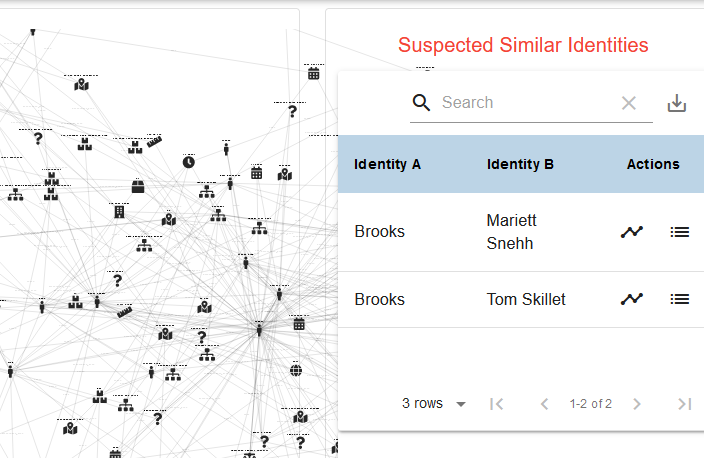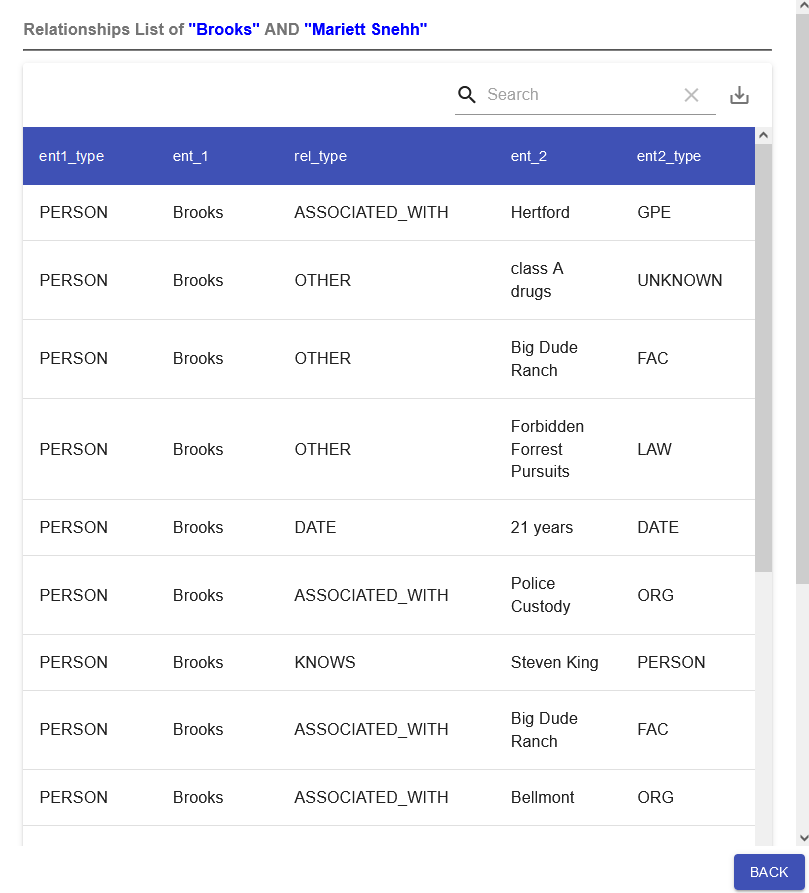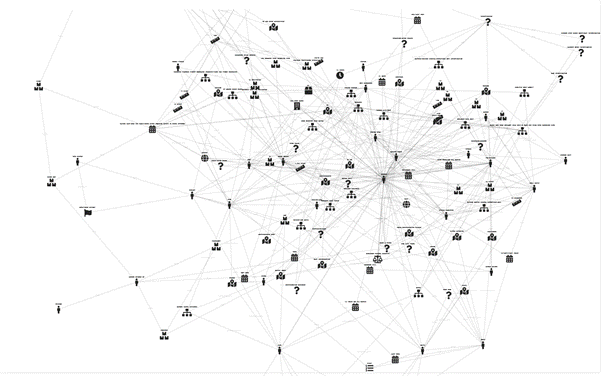Newsletter #4 - LAW ENFORCEMENT AGENCIES' TOOLS AND METHODOLOGY SKILLS TO SUPPORT THE FIGHT AGAINST ORGANISED CRIME
This is another very exciting SPIRIT Newsletter indeed! We are treading our mid-summer steps towards shoring our three years project safely and effectively by the end of October 2021. We have chosen to pass the floor to our hands-on intelligence investigators who will harness SPIRIT’s outcomes beyond the life of this Horizon 2020 contract. To that end we spoke to Police Captain Theodoros Gylos from the Border Protection Division of Hellenic Police, about the challenges that Law Enforcement Agencies are facing in the fight against organised crime and terrorism and how the SPIRIT tools can help address these challenges.
Matching the above Interview, we have chosen to shed light to issues that relate to how SPIRIT may provide law enforcement agencies tools and methodology skills towards supporting the fight against organised crime.
Today, law enforcement is overcoming the deficiencies of traditional data mining by turning to entity/identity resolution technology. This technology could work through SPIRIT to:
- Integrate records from many sources
- Resolve conflicts between records
- Correct errors and complete missing field
With identity matching capabilities, law enforcement agencies can identify and match individuals, groups, events, and other critical data accurately and quickly across systems, regardless of language, structure, format, location, duplication, omissions, or errors. Identity matching enables law enforcement to gather, correlate, match, and share disparate data in ways not previously possible; this is what our partners London Metropolitan University with the assistance of AES Solutions UK and the overall SPIRIT ‘red thread’ technology team are describing in this Newsletter. Enjoy!
See you soon in our next Newsletter! Have a wonderful safe Summer and always keep an eye to the Greek Letters (especially Delta ? )
Costas Davarakis,
SPIRIT Technical Coordinator (This email address is being protected from spambots. You need JavaScript enabled to view it.)

LAW ENFORCEMENT AGENCIES VIEW ON ICT TOOLS ΤΟ SUPPORT THE FIGHT AGAINST ORGANISED CRIME
Interview with Theodoros Gylos from the Hellenic Police
What are the main threats organised crime and terrorist groups pose to the International security?
In our days, transnational organized crime and terrorism undermine and international security, posing significant threats for public safety, public health, democratic institutions, and economic stability globally. Specifically, organized criminal groups manage to penetrate the state apparatus, intensifying corruption, influencing political areas, undermining the rule of law, free press, subverting the principals of the judicial systems and transparency. Furthermore, organized crime is a threat to democracy and social cohesion, raising concerns about state security, citizens’ security and conformity on government institutions. Finally, organized crime represents a significant threat to economic growth and stability, through its subversion, exploitation, and distortion of legitimate markets and economic activity.
How SPIRIT may provide law enforcement agencies tools and methodology skills towards supporting the fight against organised crime?
Modernization of crime methods and techniques and invention of new modi operandi, used by the criminal organized groups, makes even more necessary the confrontation of the organized crime and the dismantling of organized criminal groups. Therefore, Law Enforcement Authorities must make use of technological innovation and develop new investigative measure to counter the threat of organized crime.
Research Innovation presented in SPIRIT tools are being guided and validated by a set of relevant use cases (scenarios) proposed and monitored by partner Law Enforcement Agencies; what may be highlighted as added value in the light of the deployed use cases?
Presenting an analysis of a case study drawn from a real life setting, provides the opportunity to check tools operability, propose improvements and help Law Enforcement Authorities to become more effective and better counter criminal threats emerging from serious and organizes crime. Copping with big volume of data and diversity of information, makes data quality assessment essential. In real world data through scenarios inconsistencies and errors may be revealed and test data quality.
SPIRIT has pioneered a focused activity relating to ethics and privacy preservation. What would you consider as most important elements relating to ethics and personal data privacy (e.g. GDPR)? May we specify criteria for specific use cases, to enable intelligence investigation jobs whilst maintaining privacy? In SPIRIT by connecting entities to data spaces, how would you assess privacy preservation?
Intelligence investigation may reveal various links among entities, generating valuable data for the Law Enforcement Authorities, but also raising at the same time privacy concerns. Firstly, law provisions (e.g. Data Privacy Principle) ensure data protection when accessing, using and collecting information. Moreover, on a technical level, safeguarding data from unauthorized or accidental access or loss, may ensure data privacy. Randomization, k-anonymity and distributed privacy preserving, are proposed techniques, ensuring privacy-preserving data.
Towards a SPIRIT toolkit for Resolving Identities
By the SPIRIT ‘red thread’ technology team
An Identity Resolution toolkit, developed in SPIRIT, can help Law Enforcement Agencies (LEAs) to fill gaps and make ends meet in the sleuth process of addressing diverse organized crime threats. This service alleviates LEAs to identify and match individuals, groups, events, and other critical data accurately and quickly across systems, regardless of language, structure, format, location, duplication, omissions, or errors. Identity matching enables law enforcement to gather, correlate, match, and share disparate data in ways not previously possible.
This Identity Resolution service is derived from the SPIRIT prototype toolkit which provides the ability to recognize an entity, be it a person, place, or thing, along with associated relationships, consistently and accurately based on a Relationship List which is coming from a refined keyword search, where the LEA investigator exploits already existing overt and covert knowledge regarding candidate perpetrators.
In this job, Identity models and behavior patterns are being developed to enable the capability to resolve identities. This is accomplished through machine learning techniques that assess individuals, their roles, skills, communication channels among other elements. A SPIRIT designed identity resolution method enables clear connections and marking of possible single person duplicate identities, for the candidate perpetrators. This is exhibited in the SPIRIT prototype with links between people and entities while using relationship lists which are based on results coming out from another SPIRIT toolkit service, the Refined Search service.
After completion of the identity resolution service, a list of suspected similar identities is produced:

These entities are then linked, based on machine learning techniques, to produce a new relationship list linking suspected similar identities to be displayed through the SPIRIT presentation interface (UI):

The overall results of an Identity resolution service job are displayed in a graph, providing a holistic view of all identity data, across touchpoints, with the goal of referencing points accurately for up-to-date perpetrator identities to be determined (see nodes "Brooks" and "Mariett Snehh"):

